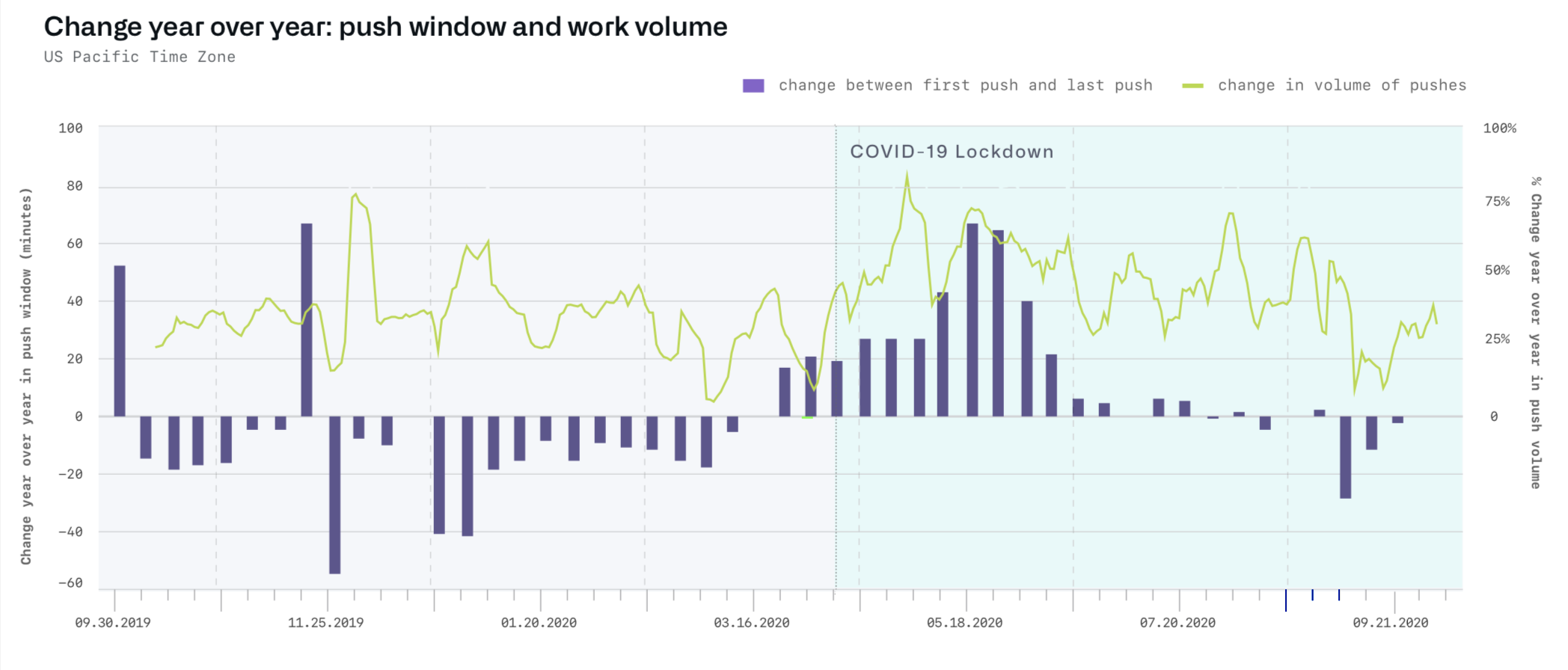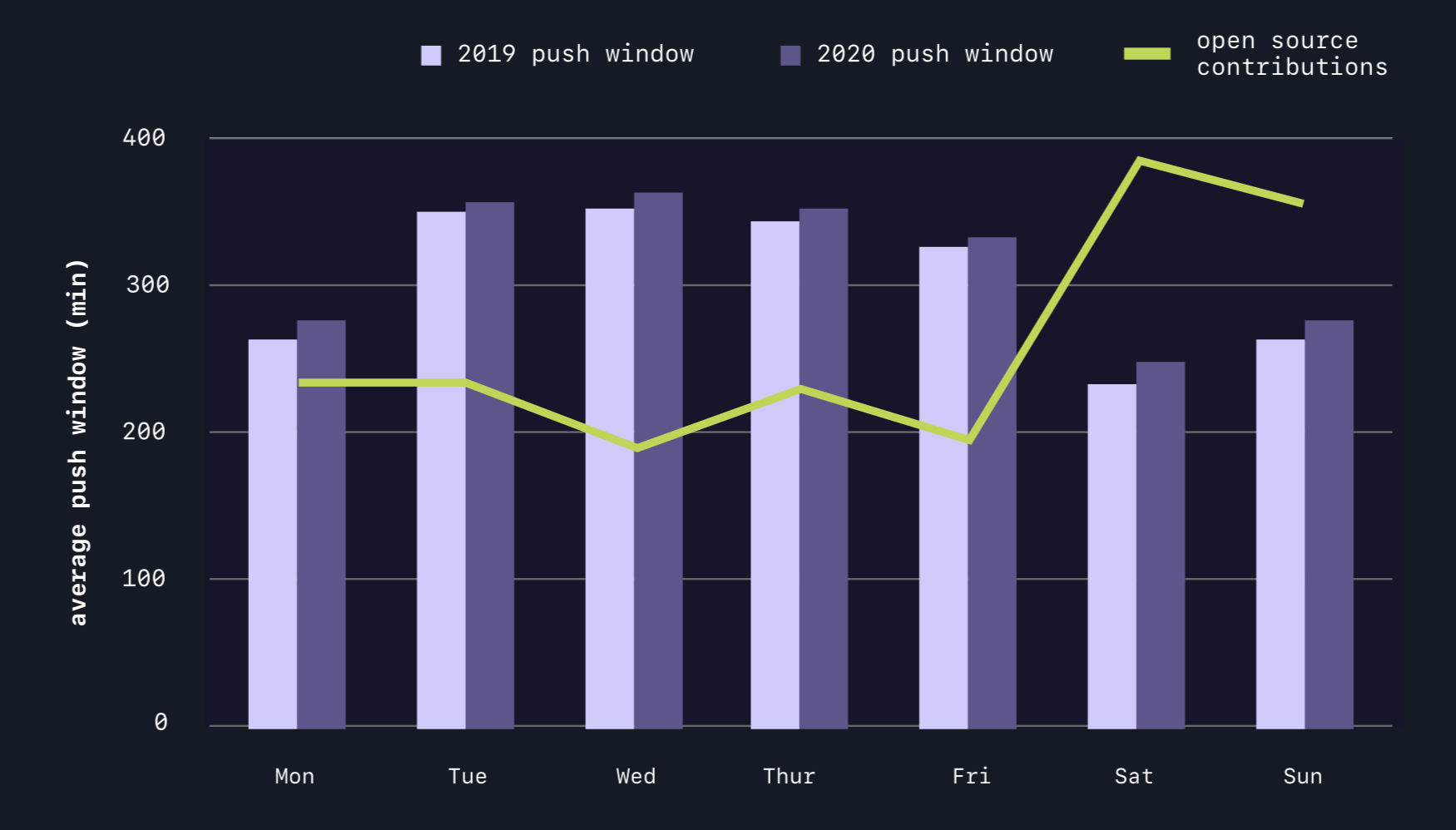GitHub has published its annual Octoverse report for 2020. The code hosting platform currently serves more than 56 million developers who created 60+ million new repositories this past year. The volume of work pumping through GitHub’s pipes and its preeminence as the world’s largest developer platform gives the company access to a trove of data on how people have been working during the pandemic.
The Productivity report shows that developers have been putting in longer hours as compared to the previous year. It includes data on what time of day people seem to be more productive, as well as minute changes in the volume of work across various time zones and countries with different COVID-19 responses. The graph below tracks the US Pacific Time Zone, showing a spike in the push window and work volume beginning in mid-March with lockdowns. The volume of work remained consistently higher than the previous year.

GitHub recorded 35% more repositories created than last year and 7.5 hours faster pull request merge times in teams’ most productive and collaborative weeks.
Developers seem to be getting more done and GitHub attributes this to people using automation to accelerate their work, improved development practices, and the flexibility of blurring the lines between work and life. The report also cautions that this high volume of work may not be sustainable long-term should be tempered with regular breaks and conscious energy management practices.
This collection of reports also highlights a few trends in the wider open source community. Alongside a general jump in work volume, GitHub tracked an increase in open source activity on weekends and holidays, at the same time that Enterprise developer activity dropped. Open source project creation is also up by 25% year over year since April 2020.

The data suggests that even when developers conclude their regular work, they are turning to open source projects for creative outlets. These projects often provide meaningful connections and community while the world is stuck at home.
Based on these findings, GitHub recommends that organizations recognize the importance open source projects hold for employee wellbeing and enrichment when they are contributing outside of work.
The State of the Octoverse also includes reports on Community and Security. GitHub found that 17% of the vulnerabilities hosted on its platform were explicitly malicious but triggered just 0.2% of alerts. The remaining 83% of vulnerabilities were the result of mistakes. The company found that vulnerabilities are fixed 1.4x faster when repositories are set up to automatically generate a pull request when a patch is available.
In 2020, the average time for vulnerabilities to go undetected before being identified is four years for GitHub-hosted repositories. On average, it takes 4.4 weeks for the community to code and release a fix, and 10 weeks to alert the community on the availability of a security update. Once notified, users generally apply the update within one week.
GitHub reports that its community is becoming more diverse as those who identify as developers have decreased from 60% in 2016 to 54% in 2020. Profiles related to education are growing (up from 17% in 2016 to 23% in 2020), followed by users working in data. The platform is becoming more approachable for collaborators who do not come from a development background.